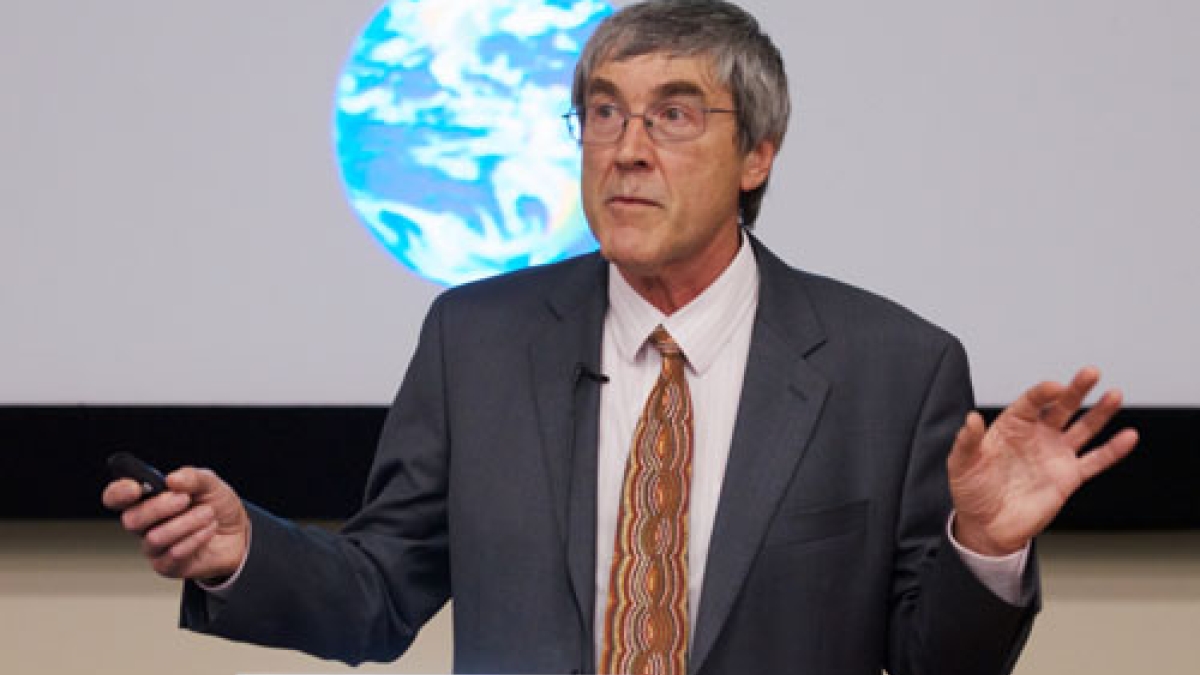Paul Davies receives Robinson Prize in Cosmology

Astrobiologist Paul Davies, acclaimed for addressing galactic questions, including “Why is the universe bio-friendly?” is this year’s recipient of the Robinson Prize in Cosmology from Newcastle University in the UK.
Awarded biennially, the prize was established in 1990 through the generosity of Philip Robinson, a Newcastle native and antiquarian book dealer, who had a particular interest in cosmology and in making cosmology accessible to broader audiences.
The British-born Davies, a theoretical physicist at Arizona State University since 2006, was a professor at Newcastle from 1980 to 1990 before moving to the University of Adelaide in Australia. From there he helped establish the NASA-affiliated Australian Centre for Astrobiology at Macquarie University in Sydney, where he applied his expertise in physics and cosmology to the search for life in the universe.
“Advances in physics suggest that instead of one ‘big bang’ there may be an infinite number throughout space and time, and that the observed universe is merely an infinitesimal fragment in a vast, more elaborate system, dubbed the ‘multiverse,’” said Davies. “This perspective also offers an explanation as to why our own universe is so bio-friendly that it looks like an intentional design.”
Known for circumnavigating the globe as a provocative speaker, Davies delivered a public lecture Nov. 24 at Newcastle University on the topic “Why is the university bio-friendly?” as part of the honor in receiving the Robinson Prize. Previous recipients of the prize include Lord Rees of Ludlow, James Peebles, Kip Thorne, Andrei Linde and John Mather.
At ASU, Davies is director of two pioneering research units: the BEYOND Center for Fundamental Concepts in Science, a cosmic think tank; and the exciting new Center for the Convergence of Physical Science and Cancer Biology, one of 12 Physical Sciences-Oncology Centers receiving funding from the National Institutes of Health’s National Cancer Institute.
His research is steeped in the branches of physics that deal with quantum gravity – an attempt to reconcile theories of the very large and the very small. His published research ranges from how black holes radiate energy and what caused the ripples in the cosmic afterglow of the big bang, to why life on Earth may have come from Mars.
Davies is a prolific author or co-author of some 30 books, both popular and specialty works, most recently “The Eerie Silence: Renewing Our Search for Alien Intelligence.” Among his other books are: “The Goldilocks Enigma: Why the Universe Is Just Right for Life,” How to Build a Time Machine,” “The Origin of Life,” “The Last Three Minutes,” “The Mind of God,” “The Cosmic Blueprint” and “The Big Questions.”
He is the recipient of numerous awards, including the 1995 Templeton Prize and the 2002 Michael Faraday Prize from the Royal Society. Earlier this month, Davies was among seven ASU faculty members who were named Regents’ Professors in recognition of pioneering contributions in their areas of expertise.